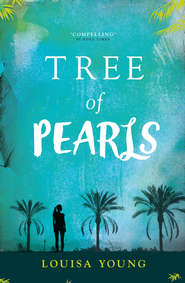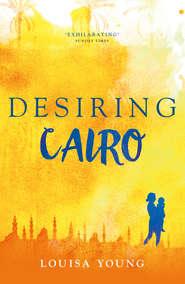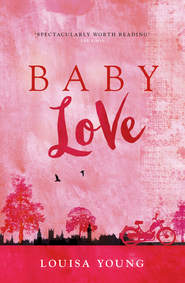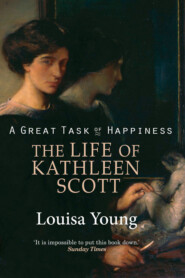По всем вопросам обращайтесь на: info@litportal.ru
(©) 2003-2024.
✖
My Dear I Wanted to Tell You
Настройки чтения
Размер шрифта
Высота строк
Поля
He stared and started, and sat up again. Just had to get the Hun to go home, then they could go home, let the politicians sort it out. They couldn’t really mean us to be doing this.
In the corner, someone was weeping and shaking, like a Spartan after battle. There was a word for it, he’d read it – what was it? The Shedding. Shedding the fear and the horror of what you have just seen and done. They had it all organised. Captain Harper was patting his shoulder and looking a bit lost.
Some others were playing cards. A Second Lieutenant was writing a letter. He lay down again. Sat up again. What the fuck? What the fucking fuck? What was he doing?
He couldn’t stand the quiet so he went outside: the moon was looking at him and the stars were rolling around. So he went back into the barn. There was snow on his hat.
Burgess was telling Ferdinand he’d met a bloke who’d seen Sir Lancelot on his white horse with his golden hair and armour, leading ghostly troops against the Hun, and the Hun had turned and fled in fear and terror. For a moment Purefoy saw the whole scene, clear in his mind, a huge canvas by Sir Alfred.
Ainsworth said, ‘I heard it was St George.’
‘It was Father Christmas,’ said Burgess.
Ferdinand lay, white, eyes staring. Purefoy gave him a cigarette and he took it wordlessly. Purefoy pressed his mind and thought about Sir Lancelot, Sir Gawaine, and Sir Alfred Pleasant, RA, FSA, of Orme Square, Bayswater Road. He thought of Sir Henry Irving who his dad had seen as Shylock at the Lyceum. He thought of Sir James Barrie, and the knights of olden times, and the knights of peaceful times, painters and writers and reciters of Shakespeare, nibs and brushes, greasepaint and burnt sienna, stage-fighting and struggling with a metaphor, have-at-thee and stains of carmine on a smock and The Childhood of the Arthurian Knights. He thought of Sir James and Sir Alfred strolling in Kensington Gardens, discussing the latest exhibition at the Grafton Gallery. He thought of the Hun in Kensington Gardens. Keep that image, he thought. The Hun bashing into London, bashing his mum, bashing Nadine’s door in. We’ve stopped them for the time being; that’s good. That’s what I’m here for. I’m here for a reason. There is a reason for all of this. That is the reason.
After a while Ainsworth came and sat by him.
His mind would not be quiet. He thought: How come men such as us, kind, humorous Ainsworth, young Ferdinand, who really cares only for food, young Bowells, who only wants to fit in – well, that’s part of it, isn’t it? – how have we slipped so easily, apparently so easily, into this bayoneting, murderous, foul-blooded maelstrom? Burgess was different: Burgess had been born fighting. Purefoy knew many Burgesses on the streets of Paddington: the violent, scurvy blood royal of the British criminal class. Understood them, avoided them, loved them, was them, dreamt of living a life where people didn’t have to be like that. That was, after all, his life’s ambition. Or had been. Not to have to be like that.
But the rest of us?
Just keep a hold. You’ve signed on for the duration. Be as good a soldier as you can and it’ll be over soon.
He lit a cigarette, and sat on his bale with his big hands dangling between his knees. He fell asleep where he sat, and his cigarette rolled away on the damp straw, and set nothing alight.
*
And then it was winter, and Christmas, and it did not seem to be over.
Purefoy sent a card to Nadine. He couldn’t help himself. He knew he had abandoned her, but from the letters she sent she didn’t feel abandoned. He had not known how to reply.
Their normal routine was four days in the front line and four in the reserve, which was quieter in the way of not being shot at or shelled, but no less busy. He had sat, in one or two rare moments of quiet, at a wonky wooden table in the local estaminet, drinking odd Belgian coffee and staring at a small oblong of blank army-issue writing paper, trying to remember what he thought about during the long nights on the fire-step, when he had imaginary conversations with her. But there was no time for mental clarity, to allow him to connect the blank piece of paper with the imaginary conversations and work out a relationship between them, and her, back in London. He could not tell the truth, because it was disgusting. He could not lie, because that was fatal. So he sent her a delicate envelope of silk, with green and pink embroidery, wishing her a peaceful day of joy, 1914, and a quick-scrawled letter: ‘. . . I am beginning to find the star shells beautiful, so long as they don’t land on me. Do you remember the painting Starry Starry Night? In a peculiar way they remind me of that. It seems a long way from home, but we all know we are doing what has to be done and we are glad to be able to do it. The boys are a great lot, cheerful and . . .’
One little Christmas card couldn’t hurt. It would be rude not to.
She sent a card back. ‘So glad you’re having such fun.’
Is she joking?
Is that all she has to say?
All around him sprang the black protective gaiety of the Tommy. He didn’t realise that he, too, was becoming wrapped in it, because knowing it would have stopped it working, and it did work, for a while. Two Austrian aristos get shot, and to sort that out millions of us have to get shot – Fate is playing a brilliant trick on us, and getting away with it: what else do you do but howl with laughter? He sang along, loud and jolly: ‘Tipperary’, Marie Lloyd songs, ‘Hanging On The Old Barbed Wire’. He caroused cheerfully in the communal baths on their days behind the lines. He nicknamed their trench Platform One, and noted how similar a trench was to a grave: you could just pour more mud in and none of us would need a funeral, he’d cracked, or a shell might do it for you. He manned the fire-step gamely; he stood to and stood down and complained about the food; he drank like a fish when it was required; he stared out over no man’s land, listening to the blackbirds in the middle of the night, or the Hun singing ‘Stille Nacht’, which they did beautifully, requiring a harsh chorus of ‘We’re here because we’re here because we’re here because we’re here’ to the tune of ‘Auld Lang Syne’, to drown them out, lest sentiment rise. He did not let sentiment rise. He was, it turned out, a good soldier: strong, loyal, friendly, brutal.
He laughed with everyone at how Ferdinand’s main aim in trench life turned out to be being present whenever anyone got a tuck parcel from home, just in case, you know, and he noticed how Ainsworth always gave him a handful of the fiendish northern sweets his wife sent him, to which Ferdinand had taken a liking. ‘Uncle Joe’s Mint Balls, they keep you all aglow.’ Ferdinand was young, and cried sometimes at night. ‘You just keep sucking on Uncle Joe’s balls, lad, you’ll be all right,’ Ainsworth said, seemingly in all innocence, and gamely laughed himself silly when he realised, which cheered Ferdinand right up.
Purefoy found the boys tragic. Bowells, for example, fair and scrubbed, desperate to achieve the worn look of the seasoned soldiers, to use the argot, stain up his uniform. Bowells had wept his first five nights, because there was a dog making a noise out there in no man’s land, and he had feared for its safety. Burgess had been going to tell Bowells not to worry about the damn dog, the damn dog was eating corpses, but Ainsworth had kicked him, and made a laconic cut-throat gesture.
Am I tragic like them? Purefoy thought. And if not, why not? I’m as young as them . . . Sometimes when Ainsworth gave him his granite-faced smile with the little twist of the mouth, Purefoy felt that to Ainsworth at least he was less a soldier and more a boy. ‘Courage for the big troubles in life, lad,’ he’d say, ‘and patience for the small. Be of good cheer. God is awake.’
The dog was beautiful: massively furry, big and clever. A Bouvier des Flandres, the girl at the estaminet said. A Flemish cow dog. He wouldn’t mind a dog like that when he got home. A life with a dog. Him and a dog, going on their adventures. He had a sudden memory of Messalina, her heavy head, the beautiful gambolling movements she made when she ran.
Winter was so cold. So cold. And wrong – they weren’t meant to be still there. Flanders had become mud beneath their feet. The trenches they had dug looked to Purefoy like one great long unhealing wound, splitting the land. The railways ran towards it, feeding it with fuel and men and ammunition. The camps and hospitals and tents and tunnels alongside were parasites, and then down the middle lay no man’s land, mined and festooned with barbed wire, a long, suppurating ulcer. The wound, like a perpetual-motion machine, seemed to be taking on a life of its own, and there it was, and there was he, and that was it: a system.
He was sitting one morning early, waiting for the dixie containing breakfast to come down the line, a silvery blueshot dawn, a day that, he realised, would be as limpid as the one a year ago, God, was it a year ago, if you looked up, not out, and just saw the blue sky, and the birds flying across it as if nothing was happening, if you blocked out all the rest . . .
Purefoy kept throwing; kept throwing. He threw for weeks, for months. At some stage he was given proper grenades and a helmet, though they all learnt to piss on a handkerchief to breathe through long before gas masks came around. One night he saw Captain Harper flying across the sky like a whirling starfish before shattering into a flaming shell crater, and he put the sight in that special part of his brain he would never go to again, fed it through the greedy slot in the forever unopenable door. His thoughts jumped like fleas, like drops of water on a hotplate, uncatchable, inexplicable.
The new CO was a Captain Locke, tall and pale with a swooping body, like a heron’s, and a nose like an eagle’s beak. His long thin legs crossed round and round themselves when he sat; Purefoy could tell that out of uniform he would wear tweeds, and they would flap around his long ankles.
With him, in the summer, they were moved along the line, south towards the River Somme. Their new trench system extended out of the cellar of what had been a handsome old stone farmhouse, where beautiful wallpaper hung, sooted and flapping, from the last shards of upright wall. The cellar had been dug out for the officers, and someone had put a piano down there.
‘Anyone play at all?’ asked Locke, hopefully, sticking his head out.
Ainsworth, it turned out, had played the organ at Wigan Parish Church. He hesitantly entered the officers’ glamorous cave, and smiled a little at the sight of the piano. ‘Little rusty,’ he murmured, but when he sat down an air of authority arose from him, and when he sang, a beautiful, manly rendition of an aria from a Bach cantata, silence dropped like blossoms, churchlike. Locke closed his eyes. Riley could only suppose everyone was feeling the same lurch of loss and love and beauty and alienation from everything that they were losing hold of by the very acts of trying to protect it.
‘Ain’t that German?’ said Burgess, when Ainsworth had finished.
‘Well spotted, soldier,’ said Locke. ‘However, it is Bach, and Bach was a citizen of heaven sent down to enlighten and delight men of all nations. The Kaiser has no monopoly on the genius of his country’s sons.’
‘What’s the name of the piece?’ Purefoy asked. ‘“Ich habe genug”,’ said Ainsworth.
Locke barked with laughter. ‘Which means,’ he said cheerfully, ‘“I have had enough.” More or less. Ainsworth, thank you, that was splendid. The rest of you, lads, back to work. Er – you – stay and give me a hand with this . . .’
‘You’ was Purefoy. ‘This’ was Captain Locke’s gramophone, which needed unpacking and setting up.
‘You know what Comrade Lenin says, sir?’ said Purefoy, as they attached the horn.
‘Comrade Lenin!’ exclaimed Locke. ‘Good Lord, man, what do you know about Lenin?’
‘Not a lot, sir,’ said Purefoy, mildly.
‘Are you a Communist, Private?’
‘Would I tell you if I was, sir?’ said Purefoy. It popped out. Locke gave him a look. It struck Purefoy because it was a human look in a military world, and it was those looks, those flashes of the other reality, which kept him alive even as they made him want to weep. He desperately wanted them, but he had to avoid them. Bowells, for example. He couldn’t look Bowells in the eye any more. It was too naked and pathetic.
‘So, what does Lenin say?’ asked Locke.
Purefoy grinned. ‘Along the lines of music softens the heart and brain, sir, and disinclines a man from his purpose . . .’ Robert Waveney had quoted this to his wife one afternoon, playing her a recording of a new Russian pianist.
‘Just lay off the Chopin, Private.’
‘Don’t know any Chopin, sir,’ Purefoy lied. He’d been along to the Albert Hall often enough to rehearsals with Nadine, a world away, a world ago.
‘Well, don’t learn any, then.’
‘Yes, sir,’ said Purefoy.
Captain Locke did, one afternoon, play some Chopin on his gramophone. Purefoy recognised it, all right, and as he passed, the melody clutching at him with soft little tearing claws, he caught sight of Locke, inside, listening. The look on Locke’s face was so very lonely that Purefoy called out to him: ‘Now, now, sir, we agreed no Chopin!’ Locke looked up, shocked, startled – pleased.











